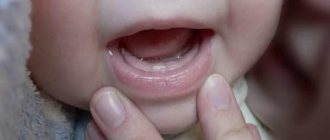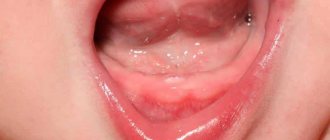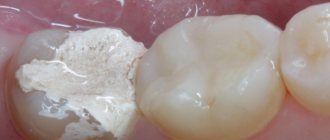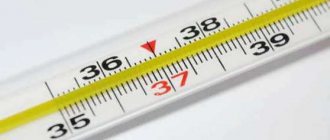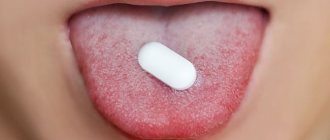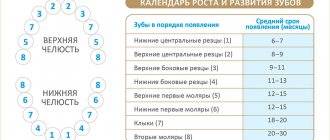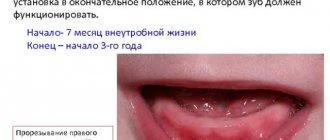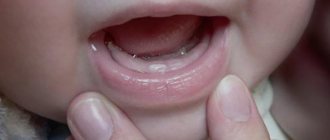The question of the need and dangers of vaccinations still remains relevant for most parents who care about the health of their baby. After all, vaccination accompanies a child from the first days of his life. It allows you to protect the child’s body from the penetration of dangerous infections, prevents the development of epidemic processes, and even in some cases helps to avoid death.
Immunization allows the baby's body to form long-term immunity against infectious diseases without transferring them. Naturally, in order for the immune system to respond correctly to the vaccine, the child must be absolutely healthy.
Teething is an important stage in the life of every baby. With their appearance, his bite and the entire dental system begin to form. It is no secret that the eruption of primary and then permanent teeth inevitably intersects with vaccination.
Therefore, many parents wonder whether it is possible to combine these two processes. So, what do experts think about vaccinations during the teething period? In particular, is it worth vaccinating a child with DTP when teething milk or permanent teeth?
When vaccine administration coincides with teething
First you need to look at the vaccination calendar and compare its data with the age when children begin to erupt milk or permanent teeth. This period will add trouble to parents, but it is during this period that a solid foundation is laid for the little person’s immune system.
It is important to remember that the appearance of teeth, although painful, is still a natural condition for the body, and therefore is not an indication for canceling vaccinations. In addition, most vaccines are easily tolerated by children. An exception may be the DTP vaccine (adsorbed pertussis-diphtheria-tetanus). It usually causes mild discomfort and a slight increase in temperature. However, these symptoms disappear after 1-2 days.
Causes of elevated body temperature
Fever is a protective-adaptive reaction of the body, which makes itself felt in response to exposure to pathogenic stimuli. Heat causes a restructuring of the body's usual thermoregulation processes, which leads to stimulation of the body's natural reactivity. As a result, the readings on the thermometer are creeping up.vi
Among the reasons that cause a slight increase in readings and do not indicate the development of any disease are the circadian rhythm (the difference between morning and evening numbers on a thermometer can be 0.5-1.0 °C), sports, dancing and any physical activity, as well as slight overheating as a result of exposure to the sun, taking a hot bath or drinking hot (and strong) drinks. In women, levels usually increase slightly in the middle of the monthly cycle, during ovulation. Of course, in all these cases antipyretic drugs are not needed.
But what to do in case of illness, when an adult or child encounters infections that lead to fever? Does VIFERON reduce temperature and to whom and when can it be used?
Vaccination and teething
Usually, the first baby teeth begin to appear in babies at 5-6 months. At this age, they are vaccinated against tetanus, whooping cough, diphtheria, pneumococcal and hemophilus influenzae infections, polio and hepatitis B. The next “vaccination” stage is at the age of 1 year (measles, rubella, mumps). At 15 months, booster vaccination against Streptococcus pneumoniae (pneumococcal infection) is required. And at the age of 1.5 years - from polio, diphtheria, whooping cough, tetanus, hemophilus influenzae infection.
Important! If some stage of vaccination was missed, for example, due to the child’s illness, then the vaccine can be given at any time from 6 to 20 months. The calendar contains routes for this purpose for those who have not previously been vaccinated. It is also important to follow the sequence of vaccine administration.
In addition, the calendar contains vaccinations that are given only when indicated: for example, for children at risk for hemophilus influenzae infection, hepatitis B or tuberculosis. Thus, for babies at risk for hepatitis B, the vaccine is administered three times in the first two months of life, as well as at the 12th month. Children at risk of hemophilus influenzae infection are vaccinated at the third, fifth and sixth month and revaccinated at the 18th month.
Vaccinations and the appearance of permanent teeth
The next stage of teeth change in children begins at 6-7 years old, and at the same time a new wave of vaccination starts. The child is again vaccinated against measles, rubella, mumps, as well as against tetanus and diphtheria. In addition, flu vaccinations become annual (they are optional).
During this period, children who were not vaccinated in the first year and a half of life and who have not had these diseases, that is, who do not have a formed immune response to pathogens, are also vaccinated.
Doctors do not forget those who should receive the vaccine according to indications. These are children at risk for tuberculosis. They are revaccinated in the sixth or seventh year of life.
Vaccinations and the appearance of wisdom teeth
“Eights,” as a rule, begin to erupt at the age of 16-18, but this process is not always as quick and painless as when the incisors or first molars appear. The fact is that wisdom teeth do not have milk predecessors, so they have to literally “fight” for a place in the dentition. Sometimes the “eights” shift and damage neighboring teeth, and if they turn out to be stronger, then the “sages” may begin to grow not vertically, but, for example, tilt to the side.
All these difficulties are characterized by protracted and wave-like eruption, which stretches from several months to several years, and painful sensations at the peak of the wave. By this age, a person has already completed the main vaccination schedule; only situational vaccination remains according to indications: against influenza, tick-borne encephalitis, rabies, viral hepatitis A, meningococcal infection and others.
When vaccinated according to indications (conscription into the army, living in regions disadvantaged by certain diseases, epidemic indications, etc.), it is also important to follow the rules of preparation for vaccination. If on the eve of the administration of the drug the wisdom tooth begins to erupt, then it is better to postpone the vaccination until the moment when the acute phase of eruption is over.
How to prepare for vaccination
How the child tolerates vaccination is important in preparing the body for this procedure. Pediatricians give advice on how to reduce the load on the immune system before and after vaccination:
- Only a healthy child should be vaccinated: if he has recently suffered from a cold or any other illness, then it is better to postpone vaccination for a couple of weeks. The fact is that a weakened immune system will give an incorrect reaction to the vaccine or not react to it at all, that is, the child will remain defenseless against the pathogen,
- the day before the procedure, reduce the size of your baby’s portions, give preference to light dishes: soups, purees, vegetables, fruits. A couple of hours before vaccination, it is better not to feed the child anything, just give him something to drink. When the body is not busy digesting food, it will respond more easily to the vaccine,
- when going to the clinic, dress your child according to the weather: you should not allow both hypothermia and overheating of the body,
- 3-4 days before visiting the treatment room, limit your baby’s social circle: avoid places with large crowds of people (transport, shops, events). Even in the clinic, it is necessary to avoid the child’s contact with other children so that he does not accidentally become infected. Some mothers ask grandmothers or older children to get in line, while they themselves wait with the baby on the street. This tactic allows you to reduce the development of negative reactions of the body to the vaccine.
Will VIFERON help with fever?
The drug VIFERON is one of the antiviral drugs that have a wide spectrum of antiviral activity and help restore immunity. This drug contains recombinant interferon alpha-2b, which prevents the spread and reproduction of viruses in the body. It is identical to human interferon alpha-2b, which is synthesized naturally in human cells in response to foreign agents, but is produced using modern technology without the use of donor blood. Recombinant interferons belong to a group of antiviral drugs that are used for therapeutic and prophylactic purposes.
Use of the drug VIFERON Candles for temperature
VIFERON Do candles reduce temperature? Let's figure it out. The original formula of the drug VIFERON restores the immune system and helps cope with the symptoms of the disease (runny nose, fever, weakness), and also avoids the development of complications and recurrent diseases. 1 Considering all of the above, we can conclude that the answer to the question “Does VIFERON bring down the temperature?” rather positive. It is important to note here that the drug is not an antipyretic; the reduction in the duration of fever is associated with a decrease in the viral load on the body, and not with an effect on the synthesis of pyrogens - substances that lead to an increase in body temperature. A decrease in body temperature when taking the drug VIFERON is more likely a sign of recovery, and not a deliberate action aimed at reducing the temperature as quickly as possible.
The drug VIFERON is available in the form of suppositories, gel and ointment. It was developed as a result of basic research in the field of immunology. It has been clinically proven that antioxidants in the form of vitamins C and E, which are also part of the drug, enhance its antiviral effect.
Prolonged teething
In general, teething is a normal physiological process for a small organism, but there are complications here too. Sometimes teething is delayed or becomes too painful: the baby’s gums become swollen, a high temperature rises (above 38 degrees Celsius), a runny nose, and signs of a cold appear. This condition can be considered a reason to postpone vaccination, but not refuse it!
“All of our incisors were cutting normally, but there was a problem with the molars: the gums were swollen, the temperature was rising, drool was flowing like a bucket. We were supposed to be given DPT, but the pediatrician said it was better to wait until the swelling went away and teeth showed. Then it will seem like it will be easier, and you can give DPT, because it itself is too heavy for children’s immunity.”
user Nastena, review from the babyblog.ru forum
At the same time, prolonged teething is a reason to consult a dentist. Perhaps at this stage the doctor will prescribe treatment that will reduce pain and allow the child to go through this period easier.
In addition, the cause of deterioration of the condition can be infectious (stomatitis) or fungal (candidiasis) lesions of the oral mucosa, so it is important to begin treatment as quickly as possible so that the disease does not develop into a more severe form and does not affect other organs and tissues.
How long can vaccinations be delayed if a child is teething?
As already mentioned, the process of teething during a normal course is not a reason for postponing vaccinations or completely refusing vaccinations.
The decision to vaccinate a teething child within the time frame regulated at the state level is made exclusively by the doctor. Naturally, the parents of a baby can write a refusal to be vaccinated, but this is not appropriate if their baby feels fine and has no problems with his general condition.
As a rule, if a small patient has pathological symptoms accompanying the process of teething, the pediatrician postpones DTP vaccination until they are completely eliminated. This can be a period of time ranging from several days to one or two months.
If the interval between the first DPT vaccinations is delayed by more than a month, then the pediatrician draws up an individual vaccination plan for the baby.
Indications for postponing vaccination
Since it is better to vaccinate a healthy body, parents should monitor the condition of their son or daughter in the days before vaccination. If a child develops at least one of the following signs, it is better to wait until he or she is completely healthy to get vaccinated. If there are several symptoms, then this is a reason to call a doctor and get tested.
Indications for postponing vaccination:
- apathy, excessive sleepiness, rapid fatigue of the child,
- disruption of the gastrointestinal tract: vomiting, diarrhea, constipation, flatulence, colic, etc.,
- signs of a cold: fever, runny nose, cough, redness of the pharyngeal mucosa,
- skin rashes,
- local infectious lesions: conjunctivitis, abscess, boil, etc.
- exacerbation of chronic diseases,
- severe fatigue: for example, during training or competitions.
Attention! It is important to distinguish between the concepts of “postponing vaccination” and “refusing vaccination”. In the first case, we are talking about postponing the date of vaccination due to temporary illness. In the second case, administration of the vaccine is not recommended for health reasons. These include an allergy to any component of the drug, diseases of an organ or system in an acute form, or the transition of an acute form to a chronic form, pathologies of the nervous or endocrine systems.
In what cases should vaccination be postponed?
A favorable result from vaccination is ensured if the child is in good health. The eruption of chewing units is not a pathological process, but under the influence of external factors it can negatively affect the baby’s immune system.
It is recommended to postpone the preventive procedure if the process of the appearance of milk jugs causes lethargy and tearfulness in the child. In this case, excessive moodiness is associated with the occurrence of concomitant symptoms - high fever, diarrhea, decreased appetite and decreased quality of sleep.
The manifestation of unpleasant signs occurs during the formation of incisors. The appearance of sharp teeth is a long and painful process that weakens the baby’s immune system. In order to avoid serious complications, before vaccination it is necessary to visit a consultation with a pediatrician, during which the doctor will examine the little patient’s oral cavity.
If a runny nose, swelling of the mucous tissues and strong salivation occur, the doctor postpones the preventive measure for several weeks. During the prescribed period, the pediatrician monitors the child’s condition and, in the absence of pronounced symptoms, vaccinates.
